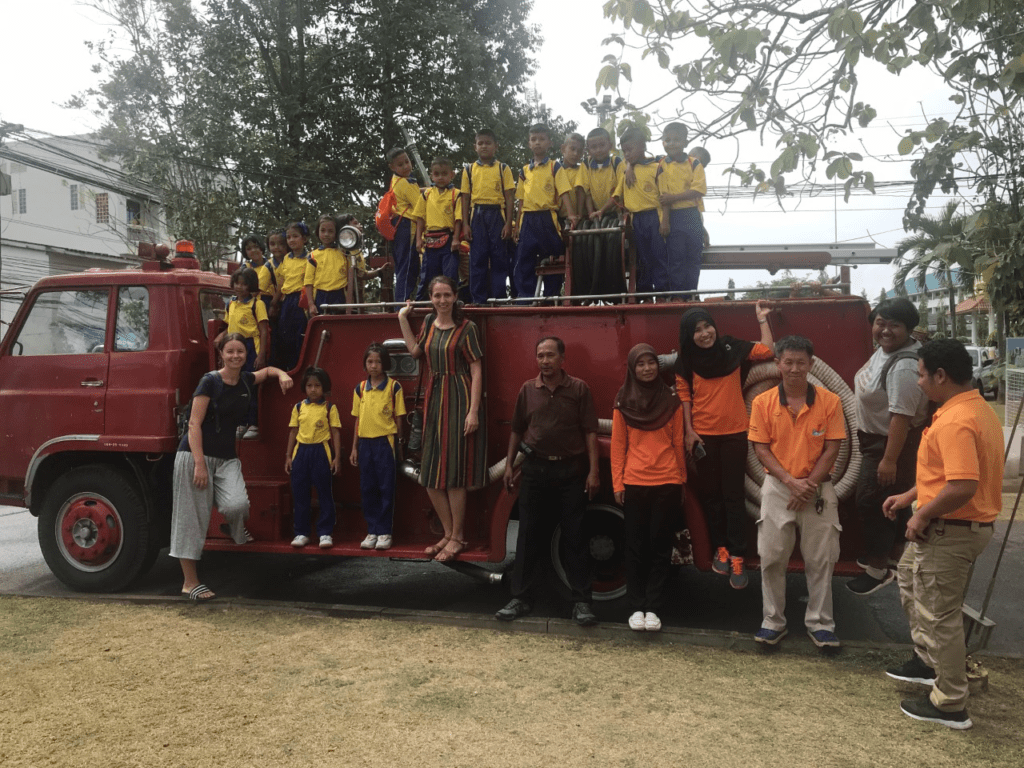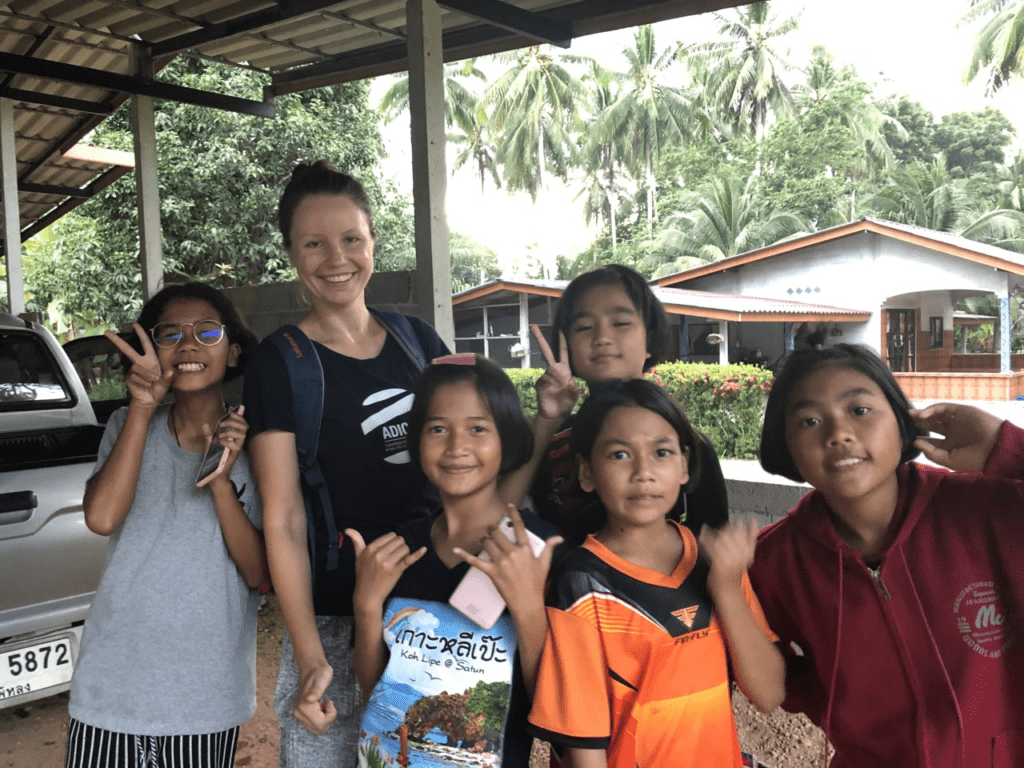Akvile, EU Aid Volunteers and Thailand
The place where I was deployed was a small fishing village with about 600 community members. Most of them were either fishing or working in a rubber plantation. Most of the villagers are Muslims and religion strongly shapes their daily lives. When I arrived in Kok Payom in October, I joined the other EU volunteer in community development and capacity building projects already underway.
The main starting point, for me as well as for the other volunteers, was the community needs assessment conducted by former volunteers. This showed that the community wanted to learn skills other than those they already had (e.g. fishing, cooking, farming) in order to create new livelihoods. They also mentioned a need for formal and non-formal learning for their children. Therefore, the main projects we worked on were projects related to supporting community members in the search for new livelihoods (community enterprise), empowering youth (girls/boys clubs), providing the community with new non-formal learning opportunities (afternoon classes, trips to Klong Toh Lem Academy (KTLA) – non-formal learning and mangrove preservation center, study tours, etc.).
Given my short deployment period (6 months), I tried to focus mainly on projects related to improving the provision of formal and non-formal learning opportunities for children in the region. The main problem here is that children who reach 12 years and older start dropping out of school, start taking drugs, young girls get pregnant and are forced to marry. This is why, in addition to teaching English at school, I launched, with the help of another volunteer from the European Union, our joint microfinance project whose main idea was to take the children out of their usual environment and introduce them to different professions and activities, in order to empower them to not make harmful choices in their lives.

I really hope that the foundation I work for will continue to implement similar projects, as sustainability is a key necessity to address youth issues in this region. The challenges that I personally found difficult during my time in the field are the following:
The language barrier. Here, your primary beneficiary is the community. A strong link with the community is essential for the success of the project. Language is a key element in establishing a link with the community. That’s why learning a local language could have helped me enormously in my work in this area.
The place and the way of life. Here, your personal space is always limited because you live in a small community where everyone knows each other. You share the common space with “the whole community”, which means that there can always be someone around you. Nevertheless, bearing in mind that the place where you live is a Muslim village, you should always be aware of your behaviour and dress (e.g. women should cover their shoulders and knees, you should avoid eating and bringing pork products and alcohol to the village, etc.). Limited opportunities for movement. Here you depend on someone who can take you to the site, as the village is not within walking distance of department stores, cafes and similar facilities. A volunteer may have a bicycle, but it takes time to get to the site, especially when the temperature is high. During the rainy season, your freedom of movement is even more limited because the rains are frequent and there is a good chance that you will catch this kind of rain while cycling.
A different perception of work. Things go very slowly here, people are not used to being exposed to stress, they are relaxed and do not think about anticipating because they live from day to day.
You also have to keep in mind that many things you start will not be finished on time or at all because you depend on the local population and here people are not used to tight deadlines. Harmony and balance in the community are their core values and they will always try to maintain them. There are also many other challenges that the volunteer may face here.

Here is my experience that I wanted to share with you. Akvile.
Et si c'était toi ?
Rendez-vous en réunion d'information !
Tous les mecredis à 11h en ligne

